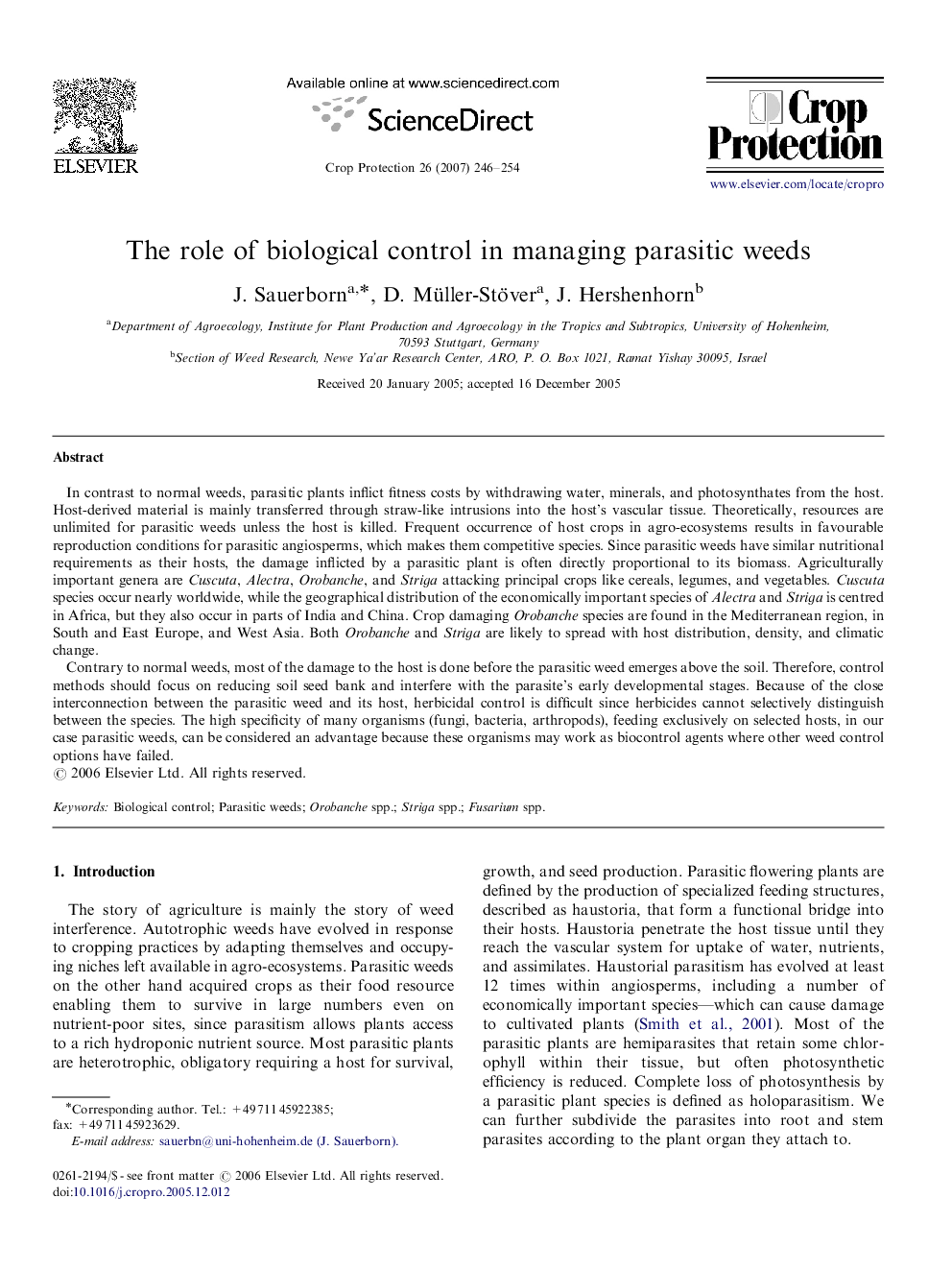| کد مقاله | کد نشریه | سال انتشار | مقاله انگلیسی | نسخه تمام متن |
|---|---|---|---|---|
| 4507911 | 1321394 | 2007 | 9 صفحه PDF | دانلود رایگان |

In contrast to normal weeds, parasitic plants inflict fitness costs by withdrawing water, minerals, and photosynthates from the host. Host-derived material is mainly transferred through straw-like intrusions into the host's vascular tissue. Theoretically, resources are unlimited for parasitic weeds unless the host is killed. Frequent occurrence of host crops in agro-ecosystems results in favourable reproduction conditions for parasitic angiosperms, which makes them competitive species. Since parasitic weeds have similar nutritional requirements as their hosts, the damage inflicted by a parasitic plant is often directly proportional to its biomass. Agriculturally important genera are Cuscuta, Alectra, Orobanche, and Striga attacking principal crops like cereals, legumes, and vegetables. Cuscuta species occur nearly worldwide, while the geographical distribution of the economically important species of Alectra and Striga is centred in Africa, but they also occur in parts of India and China. Crop damaging Orobanche species are found in the Mediterranean region, in South and East Europe, and West Asia. Both Orobanche and Striga are likely to spread with host distribution, density, and climatic change.Contrary to normal weeds, most of the damage to the host is done before the parasitic weed emerges above the soil. Therefore, control methods should focus on reducing soil seed bank and interfere with the parasite's early developmental stages. Because of the close interconnection between the parasitic weed and its host, herbicidal control is difficult since herbicides cannot selectively distinguish between the species. The high specificity of many organisms (fungi, bacteria, arthropods), feeding exclusively on selected hosts, in our case parasitic weeds, can be considered an advantage because these organisms may work as biocontrol agents where other weed control options have failed.
Journal: Crop Protection - Volume 26, Issue 3, March 2007, Pages 246–254